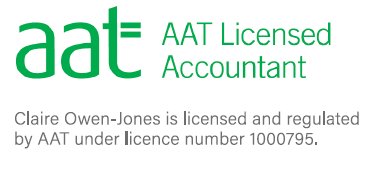One of the first decisions that you need to make when you decide to start your own business, is whether to be self employed or trade through a Limited Company.
Your initial response may be to ask around; see what friends or family do. Maybe even ask on a social media forum.
But the problem is, the correct answer is quite personal to you. So, what could be absolutely right for one person, could be completely wrong for another.
So, in an attempt to help you to decide, let’s start at the beginning.
When do you want to start trading?
When you are self-employed, you are the business and the business is you. This means that you can begin to trade right now should you wish.
HMRC will need to know that you have become self-employed, but you have until 5th October of the second tax year to tell them. So, if you began trading between 6 April 16 and 5 April 17, you have until 5 October 17 to let HMRC know.
A Limited Company is a separate legal entity to yourself. So, you will need to incorporate (set up) your Limited Company with Companies House before you can begin trading. This is because you cannot trade through something that doesn’t exist.
How high risk do you think your business will be?
One of the main reasons people are attracted to trading through Limited Companies is the fact your house is protected should the business fail.
The reason for this goes back to the separate legal entity thing.
When you’re self-employed you are your business. The plus side to this is that everything your business has belongs to you. All the money in the bank, all money your customers pay you, everything.
The negative is that everything your business owes, is also owed by you. So, if your business racks up debts, it will be up to you to pay those off. And that is why, if the debt is big enough, your personal assets can become at risk.
Because a Limited Company is separate, the positive and negatives are flipped.
So, the negative is the cash in the bank does not belong to you. But the positive is that if the company racks up debts then those debts also belong to the company and not you.
This means that you may want to have the protection of a Limited Company if you deem your business to be high risk. Maybe you will work on large projects that have a risk of bad debts? Or you’re thinking of setting up in an industry that has a higher risk of failure such as a restaurant or a shop.
But if your set up costs are small, the risk of bad debt is low and so on, then there is nothing wrong with being self-employed. Your house is probably safe.
Will you run your business whilst being employed?
Not everything comes down to tax, but it must factor in here somewhere, so here we go.
When you are self-employed you are taxed based upon your business profits and not the money that you take from the business. So, you could withdraw nothing from the business, so effectively have no income, but still have a tax liability.
Your self-employment profits are also taxed through the same tax bands as your employment income. This means that if your employment income uses up your personal allowance, then 100% of your business profits will be taxed.
If you trade through a Limited Company, these profits are taxed separately with corporation tax. You are personally taxed only on the money you take from the company, which will be in the form of employment income and dividends.
So, if your current employment income is using up your personal allowance, it can be more cost effective to pay 7.5% tax on dividends that you take from the company rather than 20% plus national insurance on all your self-employment profits.
Do you think your business will stay small or grow quickly?
Looking at things from a tax point of view again, it is also worth considering whether your business is likely to stay small or whether you expect growth to be rapid.
The figure you need to keep in mind is £45,000.
If you decide to set up as self-employed this will be the level of profits that you will need to make before you become a higher rate tax payer.
Whilst tax shouldn’t be the key motivator, it is generally more tax effective to trade through a Limited Company once you pass the higher rate tax threshold. This is because corporation tax is set at 19% and isn’t affected by tax bands like your personal tax.
As a reverse of this, Corporation Tax is due as soon as you make £1 in profit. There is no tax-free allowance to be had. So, if you expect your profits to be on the smaller side, then it would be better from a tax point of view to be self-employed and make sure your personal allowance is fully utilized.
Could you treat yourself like an employee?
Could you take a fixed salary and dividends and not touch any of the money in the Limited Company bank account?
The money in the Limited Company bank account will not belong to you; even though it’s your business and you are the one who has earned it.
This means you cannot dip into the funds to pay for your petrol or weekly food shop. You cannot set up personal direct debits such as Netflix or the gym. You cannot use the business funds to pay for your personal tax bills.
If you are self-employed then the money is yours so go ahead. Fancy a holiday and the funds are there? Then you can treat yourself. Pay for your weekly shop. Run all your motor expenses through the account.
Now of course, from an accounting point of view you should aim to keep personal and business expenditure separate, but as you’ll be taxed on all the business profits anyway and the rules are more lapse with sole traders, then you can do as you wish.
So, if you know you’re more likely to be tempted and would like that financial freedom then maybe the argument should weigh more heavily towards being self-employed.
Do you dislike deadlines and paperwork?
As a sole trader, you will need to complete your self-assessment tax return once a year.
With a Limited Company, you will have your self-assessment tax return. You will also have to file accounts and a business tax return to HMRC. And accounts and a confirmation statement to Companies House.
If you take a salary from your Limited Company, then you will also need to register as an employer and run a monthly payroll.
Your record keeping will need to be better if you trade through a Limited Company as well, due to the additional and more detailed accounts that you need to keep.
There will also be more tax bills to pay, more reference numbers and accounts to run.
You will need to make sure that all invoices and purchases are made out to/from the Limited Company and that all loans and finance agreements are also in its name and not yours.
Sales invoices, websites and stationery need to have more information on them.
This may mean that if a deadline stresses you out, you may want to keep it simple and choose to be self-employed.
Anything else that you may want to consider?
Of course, you may want to trade through a Limited Company simply because you want to. Some people think it makes them sound more trustworthy and established.
You may also work with contractors who insist that they only work with Limited Companies so force you to incorporate.
You may already have a sole trade business, in which case the turnover of the new one will be added to your current one for VAT purposes. So, if you believe that the two will have combined sales of over £85,000 then you may want to have one as a Limited Company to avoid becoming VAT registered.
You may start off as self employed but a year later decide to incorporate or vice versa.
There isn’t necessarily a right or a wrong answer. However, I recommend taking a bit of time making your decision by asking yourself the questions I’ve mentioned above. And if you are still confused, get in touch with me or another accountant and we’ll help talk you through it.







